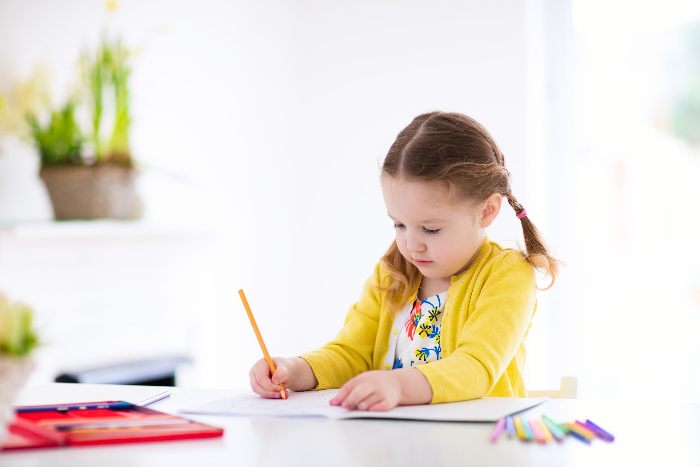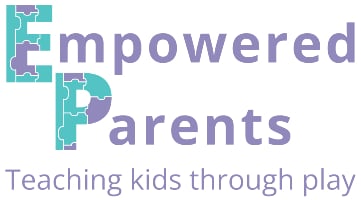Are you feeling pressure to prepare your children for playschool, preschool, kindergarten/reception year and then the grades?
Are you teaching your 3-year-old to learn the sounds so they will be ready for kindergarten? Is your 4-year-old learning to read to prepare for the first grade?
Before I go on, let me just say – I’m all about preparing children. I’m a teacher! I think children should be stimulated as much as possible and given multiple opportunities to grow and develop…….at the right pace and for the right reasons.
What I’m talking about is the kind of preparation where the only goal is to get children to a more advanced level than where they are, thus “preparing” them for the next grade or year.
Putting Pressure on Young Children
Why has preparing children taken over allowing children to be children?
When I taught in the early grades, I was constantly fighting the system. I would watch as more and more activities were introduced to “prepare learners for the next grade.”
If the children wrote weekly tests in the fourth grade, for example, soon enough, the third-grade teachers would start implementing testing to “prepare the children.”
Before long, the second graders were getting occasional tests to “prepare them for the third grade.”
The reason the tests are given in the higher grades is that these children have developed the maturity to do them and study for them. Why the need to start introducing them two years earlier?
It is argued that this helps children deal with the stress and “get used to” being tested. I have never seen any proof of this or any benefits to teaching for the sake of testing in the early grades.
What it does, is take away a significant amount of time that would otherwise have been spent actually learning!
When parents teach their 4-year-olds to read, they may have a slight head start for a few weeks when they start formal education, but that is quickly lost as all the gaps come to the fore.
These children seldom excel and remain excellent readers. Why? Because they missed out on all the essential pre-reading skills they were supposed to be doing to prepare them for reading. This then requires going back and learning foundational skills.
How to Prepare a Child for School
So, what activities should children be doing then to prepare them for school?
Children are supposed to be engaged in developmentally appropriate activities for their own age. These are activities that match children at their current maturity and cognitive capability.

It does not necessarily mean they should all be doing the exact same thing as their peers, as all children develop on their own schedule, but it does mean they should be learning at their own current level.
When your children are doing age-appropriate activities and being stimulated in a healthy way, they mature and develop properly. This is because when they reach the next milestone or grade, they are then ready to learn in different, more advanced ways.
This does not happen when you push children to learn at a pace that is unnatural or too advanced.
Sadly, what usually happens is that children’s playtime is sacrificed so that they can spend more time “learning.” They are pushed to attend too many extra programs and activities to get them ready for school.
The irony of this is that children learn more through play in the first six years of life than they will ever learn during the rest of their life. Play is absolutely fundamental to a child’s holistic development.
Here are just a few of the areas that are developed through play:
- Gross motor and fine motor development
- Social skills and conflict resolution
- Language and pre-reading skills
- Brain growth and improved memory
- Attention span
- Problem-solving and creativity
- Mathematical skills
- Reasoning and thinking skills
P.S. For simple, play-based activities that build all these skills, see the Learning Through Play Activity Pack.
So basically, everything! What else is there? Play develops every area and is the single most important activity for young children to engage in. Children in primary/elementary grades are still young and should still play along with doing their formal activities.
It is human nature to be looking to the future constantly and what is coming next. We are always striving to go somewhere else and seldom stop to live in the present moment, which is really the only moment that ever exists.
Are we doing this to our children now? Why do we not allow our children to be children?
We want our children to read and solve mathematical problems before they start school, but we should want our children to play and learn meaningfully so that they are truly ready for it when they do start school.
Over the years, I have had countless parents tell me they have hired a tutor to teach their child to read before they start school, or they have sent their child to an intense mathematics program so they can memorize all the facts before Grade 1.
When I hear this, I absolutely cringe at the thought of what they are doing to these children.
The truth is, countless activities can and should be done with preschoolers to teach them pre-reading and pre-mathematical skills.
Age-Appropriate Activities for Preschoolers
As a general guide, when you decide if an activity is appropriate for a preschooler, it should be carried out in one of these ways. Otherwise, it is probably too advanced.
- Movement activities – involving gross motor skills, such as hopscotch or drawing large letters in chalk on the paving, or fine motor skills, such as playing with pegboards, building puzzles, playing with playdough, etc.
- Music – learning rhymes, poems and songs, listening to sounds and playing with instruments/body percussion.
- Art – creative activities using a variety of mediums such as paint, pencil crayons, wax crayons, glue, glitter, chalk, etc.
- Stories and discussions – includes listening to stories and audio CDs, creating stories, discussions, listening activities, etc.
- Active discovery – discovering through play, fun science experiments, etc.

For young learners, worksheets and workbooks are not necessary and are quite meaningless actually. Children must first develop good fine motor skills through other activities before being expected to complete worksheets.
This is also why they should learn to write their name the correct way, by starting with gross motor activities.
Rest assured that if your children are immersed in these fun activities every day, they WILL be ready to read, write and learn their tables when the time is right.
Age-Appropriate Activities for Children in the Early Grades
During the early grades, the emphasis should not be on testing and memorizing, but on learning meaningfully. It should never just be a parent or teacher instructing and informing and a child passively listening.
Every worksheet or formal activity should be introduced by first using some of the following methods. These engage children who are auditory, visual and kinesthetic learners.
- Lots of hands-on learning – e.g. learning mathematics with blocks and other manipulatives, using letter tiles when building words.
- Visual activities – learning through images, diagrams, and other visual stimuli.
- Auditory activities – activities that stimulate active listening and encourage questioning and feedback.
The easiest way to measure whether your child’s activity is age-appropriate is by their level of enjoyment. If they are getting tired or resisting it, it is probably too advanced.
Learning should be fun and should remain fun throughout school.

